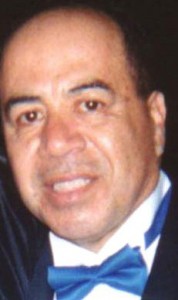
When Chula Vista resident John Acosta realized that there was no organization in San Diego to assist the City’s older Gay Latino population, and particularly those who couldn’t speak Spanish, he had to step in. Eight years in the making, the Azteca Project he created now plays a key role in linking mainstream social service agencies with the often neglected elderly gay and Latino population. When not busy directing Azteca, Acosta also may be found playing a leadership role on the Chula Vista Commission on Aging, Chula Vista Commission on Veterans Affairs, and the San Diego County Aging and Independence Advisory Council and other local organizations — or collaborating with AARP and other national organizations such SAGE the Leading National LGBT organization that focus in outreaching and educating the LGBT Elders in and outside the country.
Acosta was among a diverse group of 31 men and women aged 60 and above who were honored on Saturday (Feb. 27) as California Senior Leaders in recognition of their outstanding contributions to community building, healthy aging, and social justice in the state. Sponsored by the University of California, Berkeley’s School of Public Health and held at the Waterfront Hotel in Oakland’s Jack London Square, the awards ceremony was the celebratory culmination event in which these older activists shared their decades of experience with one another and participated in interactive trainings in areas such as media advocacy and fundraising.
Funded by The California Wellness Foundation, the California Senior Leaders Program began in 2002 as a means of shining a spot light on the often invisible volunteer and community advocate roles of California’s rapidly growing senior population.
An intergenerational program, Senior Leader participants are linked with Berkeley public health graduate students who will continue to check in with them over the next 15 months, learning from their experiences and stories, and arranging technical assistance to aid the seniors with their community building or healthy aging projects.
“The intergenerational component of the program is one of its biggest assets,” said Julia Caplan, a graduate student who directs the project. “Listening to and learning from the experiences of these older adults is an essential part of building strong communities that respect people of all ages.”
Also participating in the program this year were six Senior Leaders from the classes of 2002, 2005 and 2007, who have formed a new advocacy organization, the California Senior Leaders Alliance, and were eager to welcome the newest class of senior leaders into the fold. That they may well have succeeded was apparent in Acosta’s own philosophy for later life: “It’s not how long we manage to live, but how we manage to live long” that matters most.
UC Professor Meredith Minkler who developed the Senior Leaders Program, points out that it’s solidly based in research. “Not only have seniors been called our only expanding natural resource,” she says, “but we have strong scientific studies showing that active engagement with life is one of the most important contributors to a healthy old age. A project like this one can both honor seniors for their invaluable contributions and, by supporting them in this work, hopefully contribute to their own healthy aging as well.” By showing appreciation to individuals like Acosta, the program hopes to inspire others to recognize and appreciates the diverse roles all older Californians hold in the state’s communities and neighborhoods.